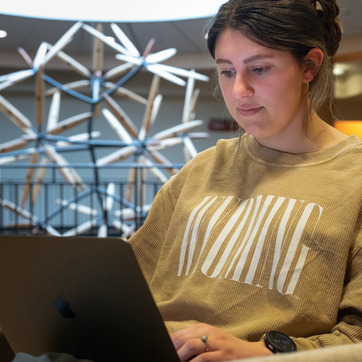
Before you begin looking at education abroad programs, calculate your current expenses to get an idea of your budget.
Make a list of your current costs to attend UW for a semester. The list should include
tuition, books, food, housing, transportation, school supplies, and daily incidentals.
If you receive financial aid, calculate how much you receive to pay for the semester.
Deduct this amount from the costs you just calculated to come to UW. This will give
you the out-of-pocket costs you have each semester.
If you work during the semester to help pay for school, calculate how much you earn
each semester.
Most students are unable to work while they are abroad because immigration status will not allow this or the cost to get a work visa is more expensive than what a student would make.
Evaluate the features and costs of various programs to find the best match for your needs and interests.
Below are some factors that influence the total cost of participating on an education
abroad program:
Location
- Big city vs. smaller town: Large cities or country capitals can automatically increase the cost of living (i.e.
New York City vs. Laramie). If the cost is an issue, you might want to consider a
smaller city or town.
- Exchange Rates: Places where the value of the dollar is higher means that your money can stretch farther,
lowering your everyday cost of living.
Timing and length of the program
- Research your intended study abroad location to find out when the peak travel season
takes place because cost will increase significantly during that period.
- The time of year in which you choose to study can also have an impact on the financial
aid you may be eligible to receive.
International airfare and on-site transportation
- Airfare will vary widely depending on your destination, check prices for the time
of year you want to go abroad.
- Daily transportation in your country, such as rail passes, taxi fares, and bus tickets
should be considered when budgeting.
Items and activities included in the program fee
- Know what your program fee covers and what it does not. Some programs include activities,
housing, or other services, while others do not. If you cannot find the costs of
your program, please talk to your Education Abroad Advisor.
- Additional costs (on top of the program fee) normally include airfare, tuition and
fees, books, immunizations, passports/visa and spending money.
Type of program
- Explore all of your options! Come to the Education Abroad Office or do a Program Search on our website to learn about all of the programs available.
- The type of program you choose can play a significant role in how much it costs. However, there are benefits that may outweigh cost factors when choosing the right option for your needs.
Costs and billing will vary for different program types, but you should budget for
the following three items:
- Study Abroad Fee: All students participating in education abroad programs through the University of
Wyoming will be charged a $325 study abroad fee. This fee includes the UW International Insurance.
- Tuition & Fees: What you pay for tuition and fees depends on the type of program in which you participate.
For details around the different program fees & tuition, see our explore programs page.
- Out-of-Pocket Expenses: Costs not included in your program fee but might be needed to pay out-of-pocket both prior to departure (passport, flight, etc.) and onsite (meals, travel, etc.); these are only estimates and will not billed to your student account.
Please use our budget calculator to plan expenses during your education abroad program.
It is important to consider how you will handle your money during your time abroad.
In this section we will cover different points to consider while abroad:
Exchange Rates
Keep track of exchange rates. We use online currency converters, such as oanda.com while abroad, to stay up to date on the latest rates. You may consider downloading
these apps as well.
Avoid Fees
You will probably want to have cash on you most of the time abroad, but be strategic
about visiting the ATM. Take out enough cash to last you a week or so, go home, save
what you don't need somewhere safe, and carry around a smaller amount. This will cut
down on transaction fees.
Local Currency
Remember that many countries are more cash-based than the US, so you can't always
rely on a debit card or credit card for small purchases. Pulling cash out of ATMs
is your best option (using the tips above). You will receive cash in the local currency
at the best exchange rate. Avoid using currency exchange locations as their exchange
rate is likely much worse than what you would receive at a bank and it will cost you
more to exchange currency.
Accessing Funds
Plan ahead for accessing money abroad. ATMs are often the best way to access money abroad and are widely available overseas. Make sure you use ATMs that are connected to banks (preferably inside a vestibule) which may have a security camera nearby. Some ATMs have been altered or have had skimmers added to them that will steal your banking information.
